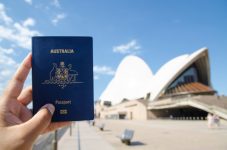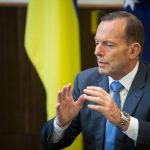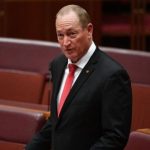Laws Empowering Government to Revoke Citizenship May be Unconstitutional

The Morrison government announced late last year it would be passing legislation to lower the threshold for stripping Australians suspected of terrorist activity of their citizenship.
The Federal Labor Party has now signalled its intention to oppose the measure after receiving legal advice that the new legislation may be unconstitutional.
The proposal
The power to strip convicted terrorists of Australian citizenship was originally passed through parliament with bipartisan support in 2015.
The Australian Citizenship (Allegiance to Australia) Bill 2015 empowered government bureaucrats to cancel the citizenship of dual citizens who they claimed were involved in terrorist activity, without the right to a court hearing.
The Bill amended section 35 of the Australian Citizenship Act 2007 to give the Immigration Minister the power to cancel the citizenship of dual citizens aged over 14-years if he says they fought for, or were in the service of, a declared terrorist organisation.
The Bill introduced a ‘Citizenship Loss Board’ made up of ASIO officers and other state agents, whose job it is to identify and advise the Minister about who they suspect of being ‘jihadi’ dual citizens.
At the time, then Federal Attorney General George Brandis stated:
“Dual nationals who engage in terrorism are betraying their allegiance to this country and do not deserve to be Australian citizens”.
However, there was widespread criticism of the proposal to allow bureaucrats to administratively cancel a person’s citizenship, rather than have this power left to the courts.
Lowering the bar
Now, the government is proposing to make it even easier to cancel an Australian’s citizenship.
The new laws would allow for a person to be stripped their citizenship if the Minister is “reasonably satisfied” that he or she could gain citizenship elsewhere.
The effect would be that, even if a person only has Australian citizenship, the Minister could effectively render them stateless if, for example, they were born in another country.
Constitutionality
The Labor Party has received advice from Queen’s Counsel Peter Hanks that there is a “reasonable argument” that legislation empowering the Minister to revoke citizenship on a subjective belief the person may be entitled to dual citizenship would be unconstitutional.
“On balance I believe that there is a substantial risk that the proposed [section 35A] would be found to offend chapter III of the constitution,” he advised, referring to the section which defines the operation of the judicial branch of government.
Mr Hanks opines that the Commonwealth has power to make laws for “naturalisation and aliens” but not to define alien so broadly as to give it power over “persons who could not possibly answer the description of aliens”.
He advises that the proposal operates on people who are presently Australian citizens, and do not therefore meet the definition of alien in the constitution. He adds that a Minister’s perception of their citizenship does not make a person an alien.
The QC further adds that giving the Minister the power to revoke citizenship breaches the concept of separation of executive and judicial power. This is because stripping citizenship is a “form of punishment” for wrongdoing, and such power is properly vested in the Courts.
Constitutional academic George Williams has gone even further, suggesting that the Coalition’s amendment could see the entire part of the Act struck down by the High Court.
Cannot ignore the advice
Shadow Attorney General Mark Dreyfus that the government would be foolish and irresponsible to ignore the advice of constitutional experts.
“The government has not sought any assurances, even from its own solicitor-general, that this bill is constitutional,” he remarked. “It’s failed at even basic due diligence.”
Empowering politicians to make legal decisions
The case of Neil Prakash exemplifies the potential unfairness of empowering bureaucrats to make decisions regarding citizenship.
Mr Prakash was born in Melbourne to a Fijian father but that country made clear he was not a Fijian citizen – information which was consistent with the public register.
Immigration Minister Peter Dutton cancelled Mr Prakash’s citizenship on the basis of information that he fought for the Islamic State.
The Home Affairs Department later revealed that Mr Dutton relied on advice from the Australian Government Solicitor that Prakash was a Fijian citizen, but gave no indication of the basis for this conclusion.
The Department admitted it did not take any steps to determine the Australian’s citizenship status. It did not check the public register, ask the Fijian government or receive legal advice regarding any entitlement to Fijian citizenship.
In the result, Prakash was not entitled to Fijian citizenship and was for a time rendered stateless as a result of the Minister’s uninformed decision.
Obligations under international law
The United Nations High Commissioner for Refugees (UNHCR) has expressed the view that the proposed amendments “create a heightened risk that an individual could be rendered stateless” contrary to Australia’s obligations under the 1961 Statelessness Convention.
The Law Council’s David Neal has also criticised the proposed dilution of citizenship rights, pointing out that even suspected low-level offending could have dire consequences for individuals.
He expressed specific concerns that any suspicion of “associating with a terrorist organisation” could impact severely on people participating in legitimate social gatherings and religious festivals, if the Minister sees fit to cancel citizenship on that basis.
Such decisions could be based on political considerations rather than any credible evidence of terrorist-related activities.







